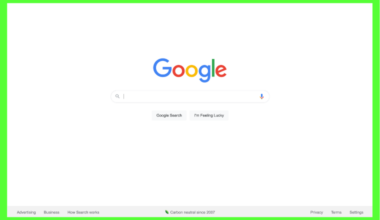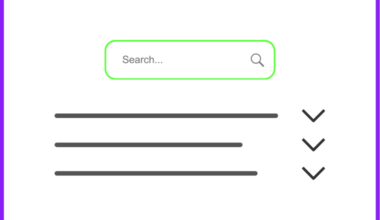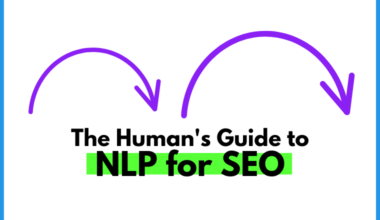In the ever-evolving world of SEO, content length remains a hotly debated topic. Is there such a thing as an ideal length for your online content?
As an expert in SEO (I promise that’s true; LinkedIn says so!), I dubbed this the “Goldilocks Rule of Online Content.” Let’s talk about how to find that sweet spot where your content is neither too long nor too short, but just right.
The Goldilocks Rule, Explained
The Goldilocks Rule of Online Content states that a page’s content should be just long enough to address the precise intent of the person who searched for the term/topic you are targeting without adding unnecessary fluff.
Rebekah Edwards, Clara
A few weeks back, I consulted for someone who experienced a significant traffic drop – over 80%. Upon reviewing her content, the issue became clear: her content was exceptionally long.
To clarify: This wasn’t about hitting a specific word count. In SEO, there’s no magic number that guarantees success.
Instead, I focused on the intent behind the queries she was targeting and compared her content to pages that outperformed hers on the SERP.
What I found was striking: The successful content addressed the query’s intent directly and concisely, without unnecessary fluff. Her content, while well-researched and detailed, was optimized for an outdated SEO approach.
This is fairly common in SEO — misinformed advice, changes in Google’s algorithm over time, and people who are just really bad at their jobs are all to blame. I’ve spoken with many clients over the years who thought that they needed to hit a specific word count (or do many other unnecessary things) to rank well.
Looking for a content partner to uplevel your organic reach? Set up a discovery call with Clara.
So, how do you know if your content is too long, too short, or just right?
Your content is too long if…
- It includes unnecessary explanations (like a “what is diabetes” section in an article about “diabetes supplements”).
- The introduction or initial sections are too long before addressing the specific query (e.g., lengthy discussions about women’s boot styles in a post meant to list the “best women’s boots for 2024”).
- It answers the query’s intent initially but then veers off into several unrelated sections, often to hit a word count or incorporate specific keywords.
- It’s significantly longer than the top-ranking content without adding more value to the topic at hand.
Your content is too short if…
- It fails to fully address the target keyword’s intent.
(Yes, that’s the only qualifier.)
Examples of this might include an article targeting Caribbean medical schools list that doesn’t actually list the schools or a post about how to know which student loan forgiveness programs I qualify for that lacks practical steps for qualification.
This also covers transactional pages that don’t contain vital information a purchaser would need to know before clicking “Buy.”
Your content is just right if…
- It addresses the query’s intent early on, ideally in the introduction or the first heading.
- It features clear, related headings that anyone with a basic education level can understand at a glance.
- It avoids filler information such as unnecessary keywords or sections added just to increase the word count.
- It utilizes elements like tables, images, videos, and interactive tools effectively to meet search intent without adding superfluous content.
There’s still a law of averages.
While no word count number can actually tell you what constitutes thin content or excessively long content, there are a few averages to consider.
In my experience, these ranges are (typically, not always) where high-quality content that ranks tends to fall within:
- B2B content: 600-2200 words
- Entertainment content: 1500-3000 words
- Health-related content (standard queries): 1200-1800 words
- Health-related content (very specific, long-tail queries): 800-1400 words
- How-to content: 400-5000 words
- Local service content: 300-800 words
- News: 400-4000 words
- Recipes: 200-1200 words
- Technology: 1000-2000 words
- Transactional pages (simple): 150-600 words
- Transactional pages (landing pages or high-ticket items): 1200-3000 words
B2B content is very hard to nail down word counts for because the intent varies so widely. Many queries may be answered with relatively short posts, while some (such as deep dives into using a certain type of software, or expert-level how-to guides) need to be much longer.
Entertainment-related content tends to be longer than a lot of other content. This is often because the articles on these topics take a very complex look at elements of entertainment (think video games, films, books, etc.) from worldbuilding to specific characters to book-to-film adaptation differences and beyond.
As always, it depends, and some entertainment content will be very short. For instance, if someone searches for a “short summary of The Hunger Games,” there’s no reason to write 1500 words to meet that search intent.
How-to content has the largest range on my list, and for good reason. I’ve edited and optimized long-form guides for complex topics that hit the top of the range as well as short answers for how to complete short tasks.
If I have to explain why news content can range dramatically… you may need to ask a journalist.
When it doubt, make it helpful.
The rule of long-term SEO is that the content you build to reach an organic audience should, first and foremost, be as helpful as possible. It should meet and exceed the intent of the user, no matter how long that means your content will be.
We’d love to help.
Read Next: NLP for SEO
Looking for a content partner to uplevel your organic reach? Set up a discovery call with Clara.






